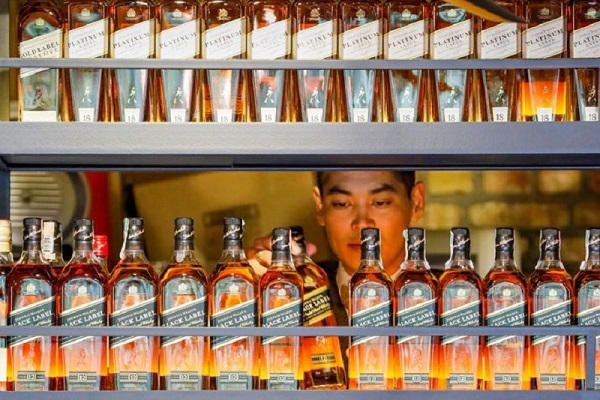
Diageo Upgraded; RBC Identifies Reset Opportunity Amidst Challenges
RBC Capital Markets has upgraded Diageo to a “sector perform” rating from “underperform” in a recent note, increasing the price target from £21 to £24.
This rating change coincides with Diageo’s preparation for leadership transitions and its efforts to align expectations with a more traditional consumer staples approach.
With the upcoming appointments of new CFO Nik Jhangiani and Sonya Ghobrial as Head of Investor Relations, Diageo is set for a strategic reset.
According to analysts at RBC, Diageo has an opportunity to realign expectations as it transitions to a more conventional staples business. They emphasized that this reset should include a comprehensive reassessment of revenue and profit guidance, which they see as essential for restoring investor confidence.
Despite raising prices by around 30% per case since 2020—significantly above inflation—Diageo has struggled to achieve volume growth. This pricing strategy has resulted in a decline in sales from high-end Reserve Brands, dropping from 29% in 2023 to an expected 27% in 2024. RBC anticipates this trend may persist, potentially impacting margins and growth.
The decrease in high-end Reserve Brand sales poses a challenge to Diageo’s prior revenue and profitability objectives. RBC suggests that Diageo could enhance its performance by cutting back on investments in aging inventory and capital expenditures, which have been higher than historical averages.
Over the last decade, Diageo has fallen short compared to the overall food and beverage sector. The brokerage advises that by moving away from outdated growth forecasts and aligning expectations with market realities, Diageo could begin to rebuild investor trust.
Analysts noted that investor confidence has been significantly eroded, stressing the importance of under-promising and over-delivering to regain it.
RBC also questions the perception of Diageo as an “affordable luxury” brand, arguing that the combination of substantial price increases and poor volume growth reflects challenges typical of traditional consumer staples rather than the dynamics of the luxury market. The note suggests that Diageo’s recent performance and strategic focus may indicate a shift away from its previous luxury branding.
 GOOGL
GOOGL  META
META 


